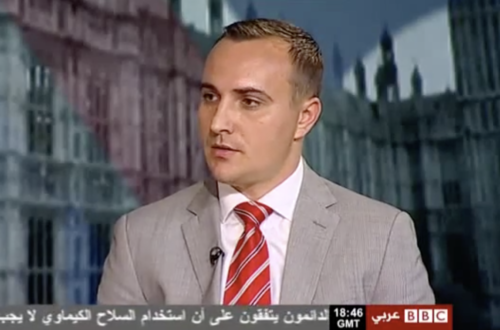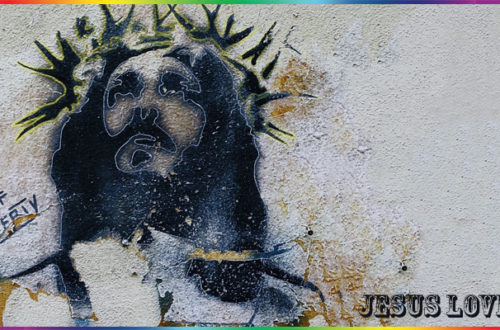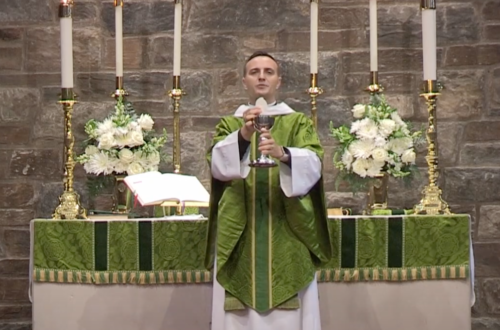“This is the end, but for me it is the beginning of life!”
It’s early at dawn, Monday, April 9, 1945. Clear skies have opened above the beautiful Bavarian forest on the German border with Czechia. Even though it’s still freezing, the snow has melted from the mountain slopes, and winter is nearly over. As nature is coming back alive, there is this irresistible sense of optimism in the air. The end of the war seems finally within grasp. The Soviet forces are only three weeks away from capturing Berlin and the Nazis at Flossenbürg Concentration Camp are aware that soon enough the Allied troops will liberate the camp. Hearts of many across Europe are filled with hope once again.

But on that beautiful morning, Dietrich Bonhoeffer, a German pastor, an incredible theologian and a pacifist turn spy, is stripped of all his clothing and led naked into the execution yard, where he is subsequently hanged alongside four German generals and other fellow conspirators for their attempt at assassinating Hitler. Bonhoeffer died a martyr’s death and is commemorated as a saint in our Anglican tradition. His statue stands proudly right above the entrance to Westminster Abbey. It is, however, his last words, which he uttered to his fellow prisoners as he completed his last Sunday worship service that truly set him apart as a witness to Christ:
‘This is the end, but for me, it is merely the beginning of life’.
I can’t even imagine what one must feel when faced with death. Even the mere thought of losing a loved one fills me with terror. Grieving the death of a friend, a relative, or a beloved pet is incredibly painful. Yet, none of us will ever be spared that moment when our physical life will come to an end and we’ll be faced with reality yet unknown. Death is a termination of all our control and worldly certainties. Our mortality is inescapable. One might say though that birth and death are also like the frame of a painting. They highlight the beauty and value of all the watercolours that are contained on the canvass.
It is, indeed, that Christ’s professed belief in the resurrection that the Sadducees are so opposed to in today’s Gospel reading. This group of powerful, well-educated and well-to-do priests of the Jerusalem temple was keen to prove the absurdity of Jesus’s teaching. In a truly hostile and sarcastic way, they pose to him a question that seemed logically impossible to answer correctly. Yet, Jesus, presented in Luke’s Gospel as the great teacher, uses their own tactic of referring to the Torah alone against them. He reminds them the words of Moses calling YHWY as ‘the God of Abraham, the God of Isaac, and the God of Jacob’. Given the fact that in God all of them are alive, Jesus presents Moses as the prophet of the resurrection. That interpretation was absolutely irresistible even to the Sadducees.
Yet, as Christians, we proudly proclaim ourselves as the children of the resurrection. Bonhoeffer’s words testify to that unshakable faith that death is not the end! That death is merely the beginning of a life redeemed in Christ. Life transfigured through God’s grace. Life, in which the communion with our Creator will finally be complete, and where we will join the angels in the endless hymn of worship and praise. Bonhoeffer is only one of the countless Christian martyrs and saints that have completed their journey on earth filled with optimism. Their excitement for what lies ahead and their unwavering hope in the resurrection should strengthen us in our own hope too!
We hear that ‘they no longer dared to ask him another question’. But I’m absolutely certain that all of us at least once in our life have wondered what our life after death, our resurrected life, might look like. There are no easy answers here. No definitive categorised descriptions that fit our human comprehension exist. Walter Brueggemann, an American theologian, preached in a sermon on this passage that ‘the resurrection of the dead is an explosive event in God’s life that blows away all our meticulous assumptions and our capacity to control’. Our resurrected life in Christ excels even the most elaborate of our imagination.
We hear that Jesus responds to the Sadducees that ‘those who are considered worthy of a place in that age and in the resurrection from the dead neither marry nor are given in marriage’. That, at least, is a very clear message to us that we should always refrain from thinking about the afterlife through the prism of our earthly existence. Marriage is used here as a reminder of the deficient and limited nature of our own mundane concepts. An interesting biblical joke portrays this realism about our earthly existence pretty well. A husband hearing his wife dream piously dreaming about sheltering together under the mantle of God in heaven, replies: ‘Oh, but my dear, my vow is only until death do us part’.
This imagery of marriage becomes even more significant in explaining the character of our life in heaven in Revelation to John. There, we famously hear that heaven is referred to as the ‘wedding feast of the Lamb’, where our redeemed humanity will be allowed to ‘clothe [ourselves] with fine linen, bright and pure’. All of us, together with the saints of the church that we celebrated only last week, will be the Bride invited to the marriage supper. Our redeemed life in God is that pure communion with the Triune God. There in heaven, we will finally be joined in this perfect union with God and one another.
So today on this Feast of our Lord, let us join prophet Job in proudly proclaiming that
‘[we] know that [our] Redeemer lives and that at the last [day] he will stand upon the earth, and after [our] skin has been destroyed, then in [our] flesh [we] shall see God, whom [we] shall see on [our] side, and [our] eyes shall behold [God] and not another’. We can also join the Psalmist in joyfully signing that ‘God will keep [us] as the apple of [God’s] eyes’ and ‘will hide [us] under the shadow of [God’s] wings’.
In the words of Dietrich Bonhoeffer and in the spirit of all those veterans, who gave their lives in the service of others – death may be the end, but for us, this is merely the beginning of life!
Amen.
This sermon was originally preached at Grace Episcopal Church in Alexandria VA on Remembrance Sunday (Nov 10, 2019). Lectionary readings for the 22nd Sunday after Pentecost (Proper 27), Year C: Job 19:23-27a / Job 19:23-27a / Psalm 17:1-9 / 2 Thessalonians 2:1-5, 13-17 / Luke 20:27-38.
Photo credits: © CEphoto, Uwe Aranas




